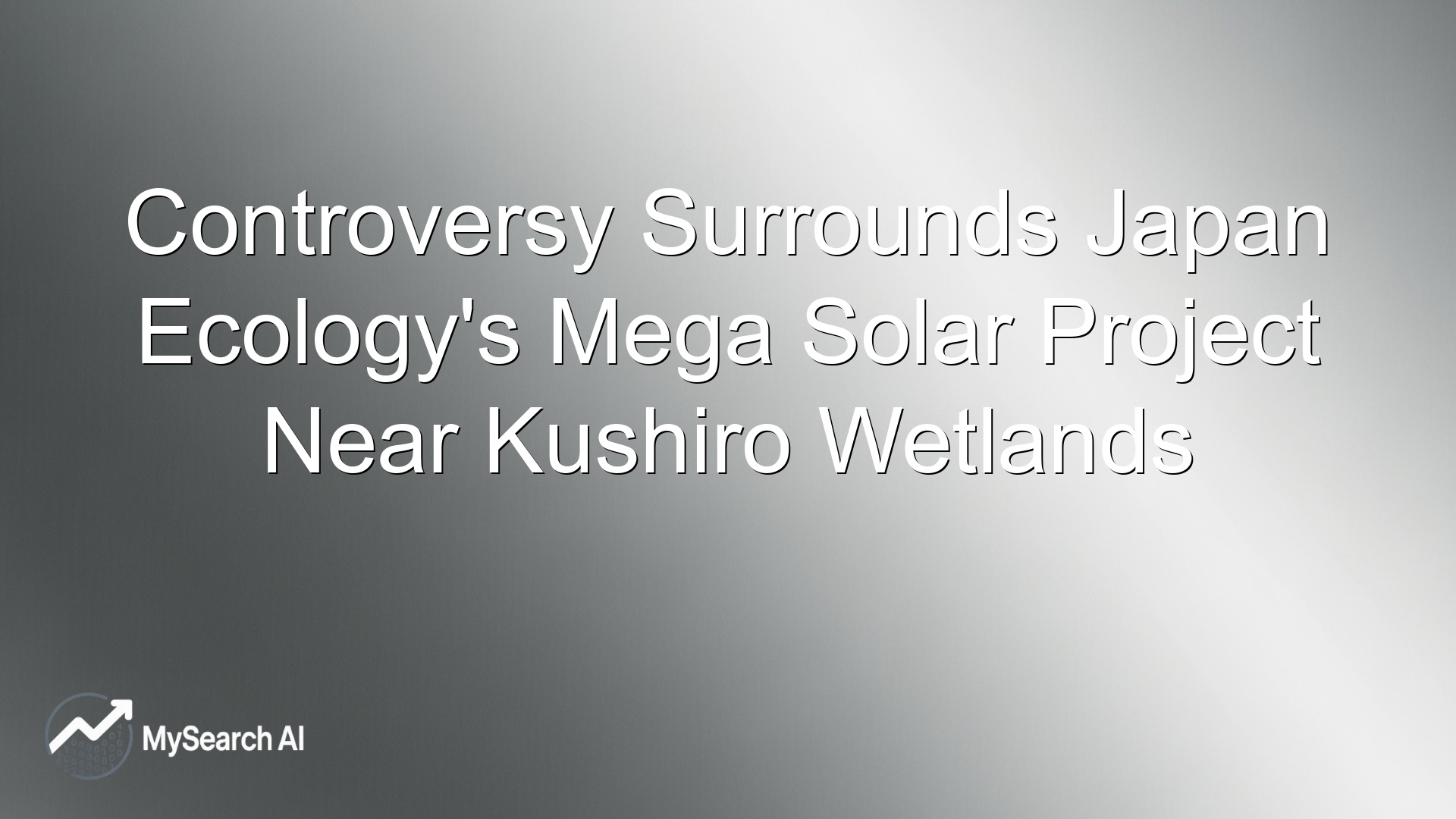Related Articles
Ask anything about stocks
Controversy Surrounds Japan Ecology’s Mega Solar Project Near Kushiro Wetlands
Japan Ecology Corporation, known as Nihon Ecology or 日本エコロジー株式会社, finds itself at the center of environmental controversy. As the company embarks on constructing a mega solar plant near the Kushiro Wetlands, conservation groups have raised alarms about potential ecological impacts. This article explores the growing criticism surrounding the project and the broader implications for solar energy initiatives and environmental protection.
The Mega Solar Construction Initiative
The mega solar project initiated by Japan Ecology Corporation aims to significantly enhance renewable energy production in the region. Utilizing cutting-edge photovoltaic technology, the project is expected to generate a substantial amount of clean energy. However, its proximity to the Kushiro Wetlands, a protected area of immense biodiversity, has put the project’s environmental conscientiousness under scrutiny.
Environmental Concerns and Criticism
Conservationists argue that large-scale solar projects can disrupt local ecosystems. The Kushiro Wetlands, known for its rich and diverse habitats, hosts several endangered species. Critics worry that the construction activities could lead to habitat destruction and alter hydrological patterns. Such concerns echo broader debates about balancing renewable energy development with ecological preservation.
Balancing Development and Preservation
While renewable energy is crucial in combating climate change, projects like Japan Ecology’s mega solar plant highlight a recurring challenge: ensuring development doesn’t come at the expense of the environment. Companies involved in large-scale energy projects are urged to conduct thorough environmental assessments and engage with local communities. This approach seeks to foster sustainable practices that satisfy both economic and environmental goals.
Responses from Japan Ecology
In response to criticism, Japan Ecology has promised to implement measures that minimize environmental impacts. The company plans to adopt technology that ensures minimal land alteration and mitigate potential negative effects on local wildlife. However, some environmental groups remain skeptical, calling for more transparency and independent oversight of the project’s environmental strategies.
Final Thoughts
As Japan Ecology moves forward with its mega solar project near the Kushiro Wetlands, the tensions between development and conservation remain evident. This situation emphasizes the need for industries to adopt sustainable practices in their quest to expand renewable energy. For investors and stakeholders, understanding the environmental implications of such projects is key to making informed decisions. Platforms like Meyka, which provide real-time analysis and insights, are invaluable for evaluating the risks and opportunities in the renewable energy sector.
FAQs
What is the controversy surrounding Japan Ecology's mega solar project?
The project has faced criticism for its proximity to the Kushiro Wetlands, with concerns about potential ecological impacts on the protected area’s biodiversity.
Why is there opposition to the solar project near Kushiro Wetlands?
Critics argue that construction could disrupt local ecosystems, threaten endangered species, and alter hydrological patterns of the area, leading to habitat destruction.
How does Japan Ecology respond to environmental concerns?
Japan Ecology has pledged to implement measures to minimize environmental impacts and is adopting technology designed to protect local wildlife and landscapes.
Disclaimer:
This is for information only, not financial advice. Always do your research.



